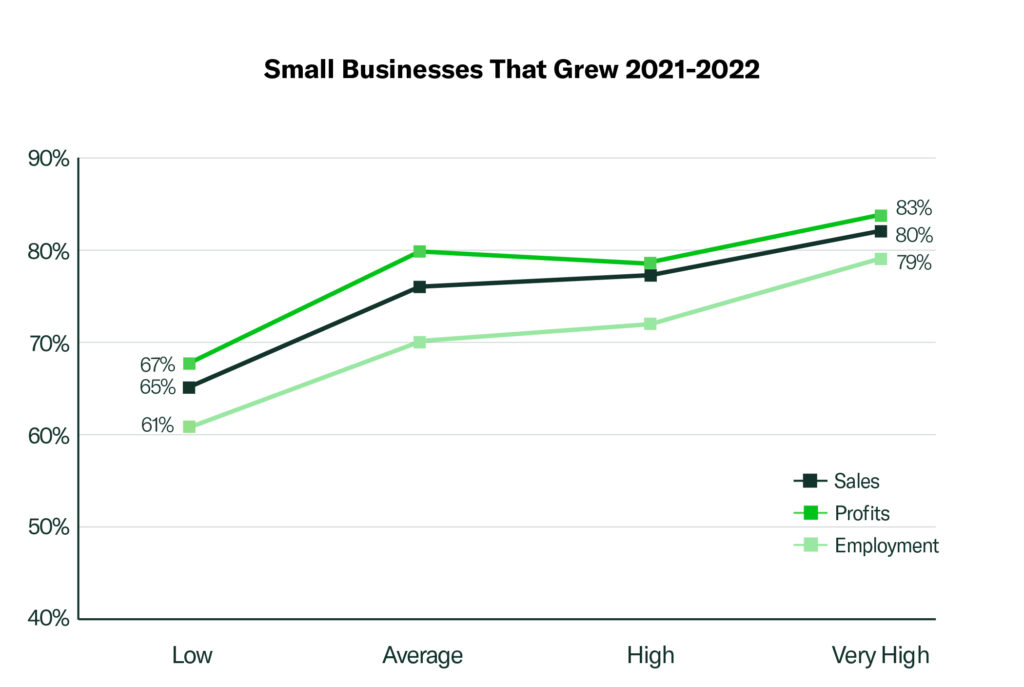The inaugural edition of the U.S. Chamber’s Empowering Small Business report in 2022 revealed how technology helped small businesses support about 100 million jobs and contribute $17.7 trillion to the U.S. economy during the pandemic, with 86% of small businesses saying tech was their “lifeline.”
Now, in 2023, the report’s second edition underscores how various technology platforms play a critical role in helping small businesses navigate challenges—like workforce shortages and inflation—and how small businesses that embrace technology outperform their peers and are more optimistic about the future. Companies are also looking at emerging technologies like AI to add to their arsenal of digital tools to compete and expand their business.
To measure the effect that a diverse range of technology platforms has had on small businesses and the economy, the Chamber Technology Engagement Center (C_TEC), working with Teneo Research, conducted a nationwide survey and econometric analysis of the U.S. small business ecosystem. We found that technology is a driver of economic success for small businesses and that policymakers must encourage an environment that enables all businesses to succeed with digital tools.

Small businesses that incorporate technology platforms are more likely to see growth in their sales, profits, and employment


One in four small businesses have adopted Artificial Intelligence (AI), leading to improved performance in marketing and communications. AI users saw a 12-point increase in their likelihood of profit growth over non-AI users.

Despite the benefits of technology, about half of small business owners express concerns over potential tech regulations and the increased costs and litigation stemming from out-of-state regulations.
95% of small businesses use at least one technology platform
$17.7 trillion and more than 99 million jobs are supported by small businesses when they use technology
87% of Small Businesses report increased efficiency due to technology platforms
Policy Recommendations
"Without the right policies in place, small businesses could lose their ability to adapt and confront the new challenges of the 21st century economy." New study from @USChamberTech on how tech is empowering US #SmallBusiness


